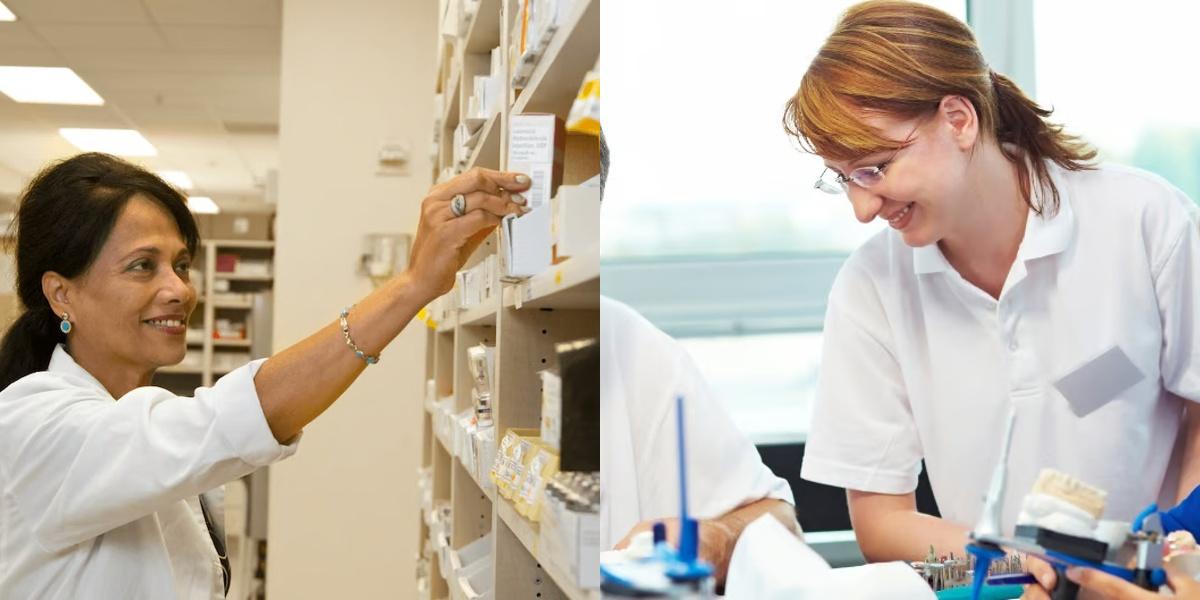Pharmacy Technician vs Psychiatric Technician

Key Points:
- Pharmacy Technicians assist pharmacists; Psychiatric Technicians work with mental health patients.
- Pharmacy Technicians typically earn higher wages than Psychiatric Technicians.
- Pharmacy Technician jobs are more widely available than Psychiatric Technician positions.
- Both roles require in-person training, but Pharmacy Technicians may have more online course options.
- Pharmacy Technician training is generally less expensive and shorter than Psychiatric Technician training.
In today's blog post, we will be exploring the differences between two medical professions - pharmacy technicians and psychiatric technicians. Both professions play a crucial role in the healthcare field, but their job descriptions, education and training requirements, and career outlooks differ significantly. If you're considering a career in healthcare and are unsure which path to take, this blog post will help you make an informed decision.
Pharmacy Technician vs Psychiatric Technician: Career Outlook and Salary
Pharmacy Technician:
The demand for pharmacy technicians is expected to grow in the coming years, driven by factors such as an aging population and increased access to healthcare services. According to the Bureau of Labor Statistics, the employment of pharmacy technicians is projected to grow 4 percent from 2019 to 2029, about as fast as the average for all occupations. The median annual wage for pharmacy technicians was $34,020 in May 2020, with the highest 10 percent earning more than $49,130.
Psychiatric Technician:
The demand for psychiatric technicians is also expected to grow in the coming years, as mental health awareness and access to mental health services increase. According to the Bureau of Labor Statistics, the employment of psychiatric technicians is projected to grow 6 percent from 2019 to 2029, faster than the average for all occupations. The median annual wage for psychiatric technicians was $35,870 in May 2020, with the highest 10 percent earning more than $64,830.
Final Thoughts
Choosing between a career as a pharmacy technician or a psychiatric technician ultimately depends on your interests, strengths, and career goals. If you enjoy working with medications and providing customer service, a career as a pharmacy technician may be a good fit for you. On the other hand, if you have a passion for mental health care and enjoy working directly with patients, a career as a psychiatric technician may be more fulfilling.
Both professions offer rewarding opportunities to make a difference in the lives of others and contribute to the healthcare field. Whichever path you choose, proper education and training, as well as a commitment to ongoing professional development, will be key to your success.
Dreambound's educational programs cater to aspiring individuals seeking diverse opportunities. Gain a more comprehensive understanding of the potential within these two vocations by exploring further details at:

Blessed Joy Amarga is part of the Growth and Sales teams at Dreambound. She helps bring in new leads, increasing the number of people at the top of the sales funnel, and supporting the team in creating graphics to boost social media engagement. Blessed is also a Licensed Architect. Outside work, she enjoys traveling and exploring new places for her vlog.




